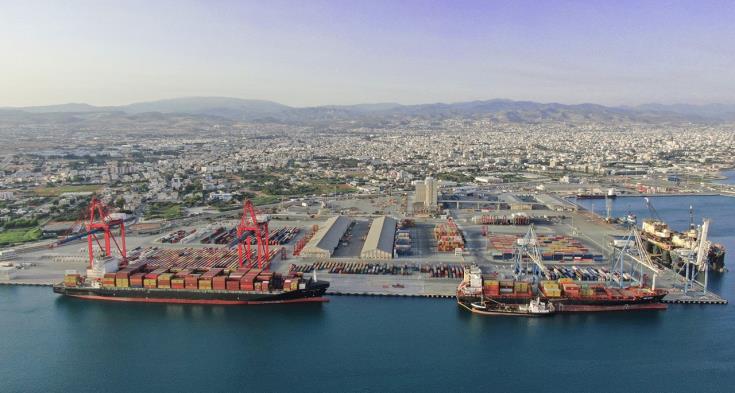The Covid-19 crisis has led to a rapid advance of technology in shipping while experts believe there is a silver lining amid the pandemic.
“The Covid-19 crisis has severely impacted the shipping industry and its operations, but unexpectedly resulted in the rapid advancement of technology,” Deputy Minister for Shipping Vasilis Demetriades told a virtual shipping conference.
Demetriades said the “future is digital and over the last two months we have fast-forwarded 5 to perhaps even 10 years in the evolution of how we work”.
He argued that advanced resource optimization systems, automated cargo handling equipment and efficient information sharing between all actors will all help cut costs.
“There is no doubt that COVID-19 pandemic is a catalyst for change. Adjusting to the “new normal” is not a cliché.”
Demetriades said the Shipping Deputy Ministry is working towards the development of a digital port state control platform and is exploring the possibility of remote audits.
Another solution that came to the surface and has been widely applauded by the shipping industry is the digital certificates.
“Cyprus has made significant progress to simplify formalities and to transform our services to a paperless environment that will increase efficiency and attractiveness of the Cyprus Registry and its relevant services.”
The Shipping Deputy Ministry is in the process of formulating a road map will turn all its services digital, creating conditions for a one-stop-shop.
Demetriades said his Ministry is evaluating all the available options and through the European Recovery and Resilience Facility (ERRF) and is examining ways to assist the sector to recover from the drastic downturn in passenger numbers and freight movements.
“We are exploring ways to support the industry in the deployment and use of sustainable vessels, alternative fuels and the digital transformation of the shipping sector.”
“It is clear that we have to rethink the way the sector operates. In this journey, there is a need for an ambitious vision and for clear objectives.”
Andreas Assiotis, chief economist of Hellenic Bank said that following the shock caused by the Covid-19 pandemic, the release in demand particularly in durable goods has led the recovery.
This demand, he explained has been contained due to horizontal lockdowns implemented as part of efforts to limit the spread of the pandemic.
“Once we sufficiently control the virus, we will be left with an ongoing economic rebound and low interest rates,” he said.
For Europe, Assiotis said a silver lining comes from the EU’s €750-bln Recovery and Resilience Fund, which would assist member states to promote reforms targeting sustainable and inclusive growth.
“Obviously the Commission has not issued a blank cheque to the member-states…this is a great chance for member-states to proceed with all these reforms that are needed again in a relatively unconstrained way”.
Tim Power, Managing Director and Head of Maritime Advisers of Drewry Shipping Consultants, said that shipping especially the sector of general cargo has been much more resilient amid the Covid-19 crisis, compared with the 2008 global financial crisis.
He said the container sector is expected to shrink by 3.3% compared with a 10% downturn during the financial crisis.
“The 3.3% contraction is a big surprise…all seem to be much more resilient.”
Power said the shipping sector is more resilient as there is no excess supply of ships compared to the 2008 crisis. (source CNA)










